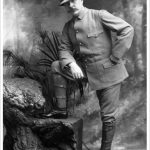To pour one’s imagination, passion, and soul into a world woven by words – such is the work of a truly exceptional writer. While it’s merely a pastime for some, it can also be a taxing responsibility for those who are truly devoted to their craft. Those who contribute to the crime genre, for instance, must conduct a great deal of research or even seek real-life experiences to deliver believable masterpieces.
Sure enough, talent alone isn’t enough if you want to make a dent in the world of literature. Apart from a brilliant idea, you must also have the grit to push through periods of frustration, nose-deep research, and feelings of hopelessness – just like what the following crime writers have displayed throughout their fruitful careers.
[bctt tweet=”These are the best crime writers – ever! ” username=”freelancewj”]
For those of you who are deep in the crime/thriller genre, take a look at the best crime writers in our book. If you disagree (or agree, for that matter), let us know in the comments!
The best crime writers
1. Linda Fairstein
 Who’s more qualified to write about crime than a former prosecutor? In 1972, Linda Fairstein graduated with flying colors from the University of Virginia School of Law. After serving as an assistant district attorney in 1972, she became head of the sex crimes unit from 1976 to 2002.
Who’s more qualified to write about crime than a former prosecutor? In 1972, Linda Fairstein graduated with flying colors from the University of Virginia School of Law. After serving as an assistant district attorney in 1972, she became head of the sex crimes unit from 1976 to 2002.
Fairstein’s bestselling series of books featured prosecutor, Alexandra Cooper. Many fans considered the character as the alter ego of Fairstein herself, especially since they shared similarities such as being based in Manhattan and serving as a sex crime prosecutor. Her latest release, Killer Looks, was only released in 2016 – so it’s not too late to be a fan yourself.
2. James Patterson
 Renowned author and philanthropist James Brandon Patterson holds the Guinness World Record for the most hardcover fiction bestselling titles. In the last decade, he outsold John Grisham, Dan Brown, and Stephen King combined – a truly remarkable feat given that these authors are accomplished in their own right. But before his huge success as a crime fiction writer, Patterson had to endure numerous rejections as well as give up his pursuit of a professorship in Vanderbilt University.
Renowned author and philanthropist James Brandon Patterson holds the Guinness World Record for the most hardcover fiction bestselling titles. In the last decade, he outsold John Grisham, Dan Brown, and Stephen King combined – a truly remarkable feat given that these authors are accomplished in their own right. But before his huge success as a crime fiction writer, Patterson had to endure numerous rejections as well as give up his pursuit of a professorship in Vanderbilt University.
What kept Patterson going was his unquestionable passion for writing, reading, and storytelling. Under his belt were books with motion picture adaptations, like Along Came a Spider from his Alex Cross series, Kiss the Girls, and the Women’s Murder Club series.
3. Arthur Conan Doyle
 When you think of the word ‘detective’, the name Sherlock Holmes may pop into mind. We have Sir Arthur Conan Doyle to thank for this, and that’s why you can’t have a roundup of the best crime fiction authors without him. He began writing short stories for magazines during his medical career from 1876 to 1881. His first academic article, Gelmesium as a Poison, was published in 1879 by the British Medical Journal for its potential use in murder investigations.
When you think of the word ‘detective’, the name Sherlock Holmes may pop into mind. We have Sir Arthur Conan Doyle to thank for this, and that’s why you can’t have a roundup of the best crime fiction authors without him. He began writing short stories for magazines during his medical career from 1876 to 1881. His first academic article, Gelmesium as a Poison, was published in 1879 by the British Medical Journal for its potential use in murder investigations.
However, Conan Doyle’s love for adventure was ignited when he filled the role of ship surgeon on a voyage to the Arctic Circle. When it comes to the beloved Sherlock Holmes character, it was confirmed that he drew inspiration from his mentor – Dr. Joseph Bell of the medical university in Edinburgh, Scotland.
4. Agatha Christie
 Arthur Conan Doyle not only enticed readers into the world of crime and detective fiction, he also served as an inspiration to some of the most notable authors in the past century. Agatha Christie, for example, adored Conan Doyle’s early works. A clear evidence was Christie’s protagonist in her first novel, Hercule Poirot, who shared a few similarities with Doyle’s Sherlock Holmes. Both used the powers of deduction to tackle the seemingly unsolvable. They even had their trustworthy partners – Dr. John H. Watson for Holmes and Captain Arthur Hastings for Poirot.
Arthur Conan Doyle not only enticed readers into the world of crime and detective fiction, he also served as an inspiration to some of the most notable authors in the past century. Agatha Christie, for example, adored Conan Doyle’s early works. A clear evidence was Christie’s protagonist in her first novel, Hercule Poirot, who shared a few similarities with Doyle’s Sherlock Holmes. Both used the powers of deduction to tackle the seemingly unsolvable. They even had their trustworthy partners – Dr. John H. Watson for Holmes and Captain Arthur Hastings for Poirot.
Although Christie was famous for her Poirot books, she also released a couple of noteworthy titles in her time, including And Then There Were None, Death Comes as the End, and The Murder at the Vicarage.
5. John Ray Grisham
 For crime authors, knowledge of the law is indispensable if you want to give critics a hard time finding loopholes and inconsistencies. This is one of the advantages of John Ray Grisham when he wrote his crime and legal thrillers. After spending a decade practicing criminal law, he no longer needed to contact a criminal defense lawyer for research and fact-checking purposes. He was also able to vividly capture the tense atmosphere of a busy courtroom into his writing.
For crime authors, knowledge of the law is indispensable if you want to give critics a hard time finding loopholes and inconsistencies. This is one of the advantages of John Ray Grisham when he wrote his crime and legal thrillers. After spending a decade practicing criminal law, he no longer needed to contact a criminal defense lawyer for research and fact-checking purposes. He was also able to vividly capture the tense atmosphere of a busy courtroom into his writing.
As proof of his literary and storytelling aptitude, A Time to Kill—Grisham’s first-ever novel—was published in 1989 and was turned into a major motion picture within the same year. He’s also responsible for other well-loved titles such as The Firm, The Rainmaker, and Sycamore Row.
6. Stephen King
 Known for several bestsellers like The Shining in 1977 and The Stand in 1978, Stephen King is probably the most versatile authors in this list. While studying Bachelor of Arts in English at the University of Maine, he had several jobs to support his studies, including gas pump attendant, industrial laundry worker, and janitor. During that time, he also wrote a column called Steve King’s Garbage Truck for the school newspaper.
Known for several bestsellers like The Shining in 1977 and The Stand in 1978, Stephen King is probably the most versatile authors in this list. While studying Bachelor of Arts in English at the University of Maine, he had several jobs to support his studies, including gas pump attendant, industrial laundry worker, and janitor. During that time, he also wrote a column called Steve King’s Garbage Truck for the school newspaper.
After graduation, King earned a certificate to teach high school but instead started writing and selling short stories – a practice which he continued even after being hired to teach at Hampden Academy in Maine in 1971.
7. Dan Brown
 Lastly, Dan Brown is without a doubt one of the best thriller writers of the modern era. But rather than focusing on isolated crimes, his bestselling books are centered around bigger conspiracies – often with flavors of cryptography, symbolism, and religion. And thanks to his meticulous attention to detail, his fans may feel as if they’re reading nonfiction.
Lastly, Dan Brown is without a doubt one of the best thriller writers of the modern era. But rather than focusing on isolated crimes, his bestselling books are centered around bigger conspiracies – often with flavors of cryptography, symbolism, and religion. And thanks to his meticulous attention to detail, his fans may feel as if they’re reading nonfiction.
Brown is made famous by the Robert Langdon books, including Angels & Demons, The Da Vinci Code, and Inferno which were all adapted into major motion pictures. These titles follow the story of a Harvard University professor who utilizes his expertise in symbolism and iconology to solve crimes, uncover historical mysteries, and demystify secret organizations. In addition to his Langdon books, Brown also published two mystery titles namely Digital Fortress in 1998 and Deception Point in 2001.


Leave a Reply